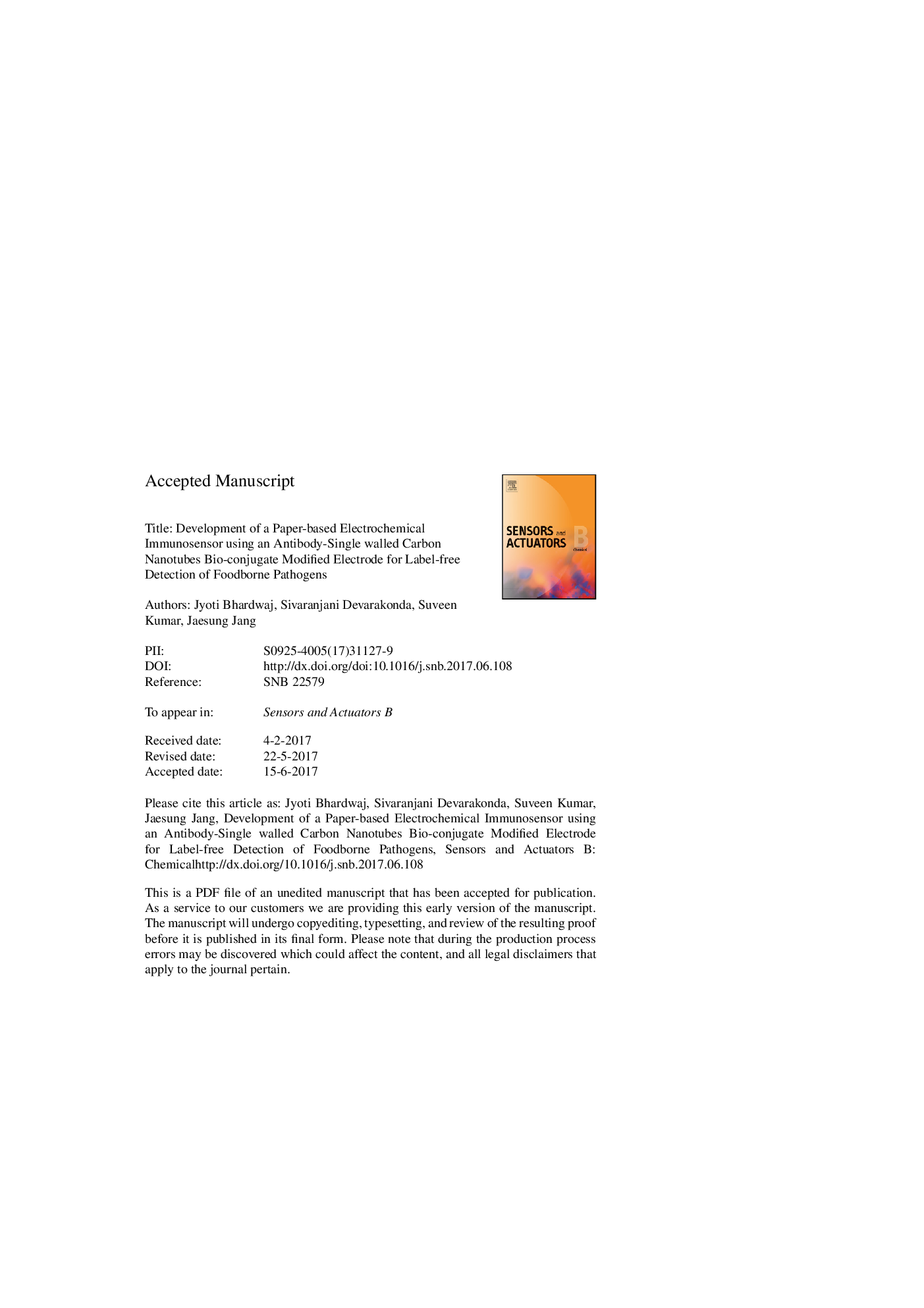| Article ID | Journal | Published Year | Pages | File Type |
|---|---|---|---|---|
| 5008954 | Sensors and Actuators B: Chemical | 2017 | 37 Pages |
Abstract
The need for low-cost, sensitive, and reliable sensors for the detection of whole bacterial cells in food samples without pre-treatment has been increasing. Outbreaks of foodborne diseases can be severe, especially in developing countries; however, most bio-detection tools are unaffordable. Here, we have developed a rapid and low-cost paper-based electrochemical immunosensor for label-free detection of Staphylococcus aureus, using antibody (Ab)-single walled carbon nanotube (SWCNT) bio-conjugates. Anti-S. aureus antibodies were covalently attached onto the SWCNTs, using the N-(3-dimethylaminopropyl)-N'-ethylcarbodiimide hydrochloride/N-hydroxysuccinimide coupling reagent. These Ab-SWCNT bio-conjugates were then immobilized on the working electrode, and the presence of S. aureus was detected by analyzing the change in peak current following antigen-antibody complex formation. Differential pulse voltammetry was performed with a bacterial concentration ranging from 10 to 107 colony forming units (CFU) mLâ1. A selectivity assay using Escherichia coli B, Bacillus subtilis, and S. epidermidis (to examine cross-reactivity) showed that the sensor was specific to S. aureus. Moreover, this immunosensor showed a good linear relationship (R2Â =Â 0.976) between the increase in peak current and logarithmic S. aureus concentration, with a rapid detection time (30Â min) and a limit of detection of 13Â CFUÂ mLâ1 in spiked milk samples. This low-cost immunosensor can be used for rapid detection of pathogens in actual food samples with high sensitivity and specificity.
Related Topics
Physical Sciences and Engineering
Chemistry
Analytical Chemistry
Authors
Jyoti Bhardwaj, Sivaranjani Devarakonda, Suveen Kumar, Jaesung Jang,
